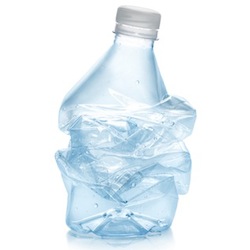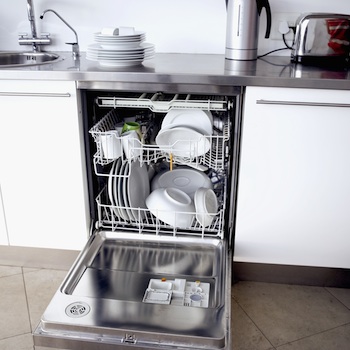January 2011 Archives

EAF Seminar and Workshop Series: Winter 2011
Updated Schedule, January 26, 2011
|
Wed 1/19 |
12:30 - 2 |
EAF Seminar Speaker Pam Cohen of Dix & Eaton, Erikson Institute and UChicago Sustainability Matters: Food & Beverage Industry Examples |
Haskell 101 |
|
Wed 1/26 |
12:30 - 2 |
EAF Seminar Speaker John Felkner of NORC and U. Chicago Spatial Economics and GIS for Environment, Agriculture and Food |
Haskell 101 |
|
Wed 2/2 |
12:30 - 2 |
EAF Seminar Speaker Esther Bowen, Dept of Geophysical Sciences, UChicago Eutrophication Impacts of Local Food Production in the Midwest |
Haskell 101 |
|
Wed 2/9 |
4 - 5 |
EAF Workshop Lyndon Valicenti, City of Chicago, Department of Environment Chicago Urban Agriculture & New Zoning Rules |
Cobb 115 |
|
Wed 2/16
|
4:30 - 7 |
Joint EAF/WGE Workshop The Urban Food Model: Perspectives on Economics, Science and Policy (Panelists: Mari Gallagher, Pam Martin, TBA) |
Franke Institute |
|
Mon 2/28
|
4 - 5:30 |
EAF Workshop Don Hanson, Argonne National Lab Transportation Energy Demand in the Medium and Long Terms: Gasoline, Diesel, Biofuels, Natural Gas, and Electricity |
Cobb 107 |
|
Wed 3/9 |
12:30-3:20 |
EAF Seminar Presentations Students from the EAF research seminar will present their research results in a workshop setting |
Haskell 101 |
The newly instituted Policy on Bottled Water eliminates plastic water bottles in Facilities Services buildings, meetings, and events. Instead, Facilities Services is providing reusable pitchers, cups, and trays for serving water at meetings and events in the Young Building, supplying each staff member with a reusable aluminum water bottle from the Office of Sustainability, and promoting the continued installation of water bottle filling stations in all Facilities staff locations.
"Facilities Services strives to be a campus leader in sustainability and this policy is just one example of our efforts to use resources -- both natural and monetary -- most efficiently," says Erin Wieand, Executive Director of Management Services, Facilities Services.
 So what's the beef with plastic water bottles? They rely heavily on fossil fuels in their production, packaging, and transportation, which result in massive waste and energy use. While plastic water bottles are indeed recyclable, the vast majority does not get recycled. In fact, plastic water bottles are the fastest growing form of municipal solid waste in the U.S., resulting in more than 4 billion pounds of PET plastic bottles ending up in landfills or as roadside litter! Moreover, the federal government does not mandate that bottled water be any safer than tap water and about half of all bottled water is really tap water in disguise, as many bottled water manufacturers simply source it from municipal water supplies. For more facts and information on bottled water, visit Environmental Working Group.
So what's the beef with plastic water bottles? They rely heavily on fossil fuels in their production, packaging, and transportation, which result in massive waste and energy use. While plastic water bottles are indeed recyclable, the vast majority does not get recycled. In fact, plastic water bottles are the fastest growing form of municipal solid waste in the U.S., resulting in more than 4 billion pounds of PET plastic bottles ending up in landfills or as roadside litter! Moreover, the federal government does not mandate that bottled water be any safer than tap water and about half of all bottled water is really tap water in disguise, as many bottled water manufacturers simply source it from municipal water supplies. For more facts and information on bottled water, visit Environmental Working Group. - Your refrigerator should be set close to 37°F and your freezer set to 3°F to conserve energy. Place a weather thermometer inside the compartment to check its temperature and adjust the dials until you achieve the desired temperature.
- Clean refrigerator gaskets regularly and vacuum the condenser coils twice a year. Your refrigerator will operate more efficiently and use less electricity.
- Keep your refrigerator full. Food retains cold better than air does, so a near-empty fridge is working much harder to cool its contents. Don't over stuff your fridge either. Air circulation is needed to cool and control humidity.
- Use a toaster oven for small jobs. It will use a third to half as much energy as a full-size oven.
- If you have a "no-heat" dry setting on your dishwasher, use it. Heat drying is not necessary after a hot-wash cycle.
 Source: Trask, Crissy. It's Easy Being Green: A Handbook for Earth-Friendly Living. Salt Lake City: Gibbs Smith, 2006.
Source: Trask, Crissy. It's Easy Being Green: A Handbook for Earth-Friendly Living. Salt Lake City: Gibbs Smith, 2006.